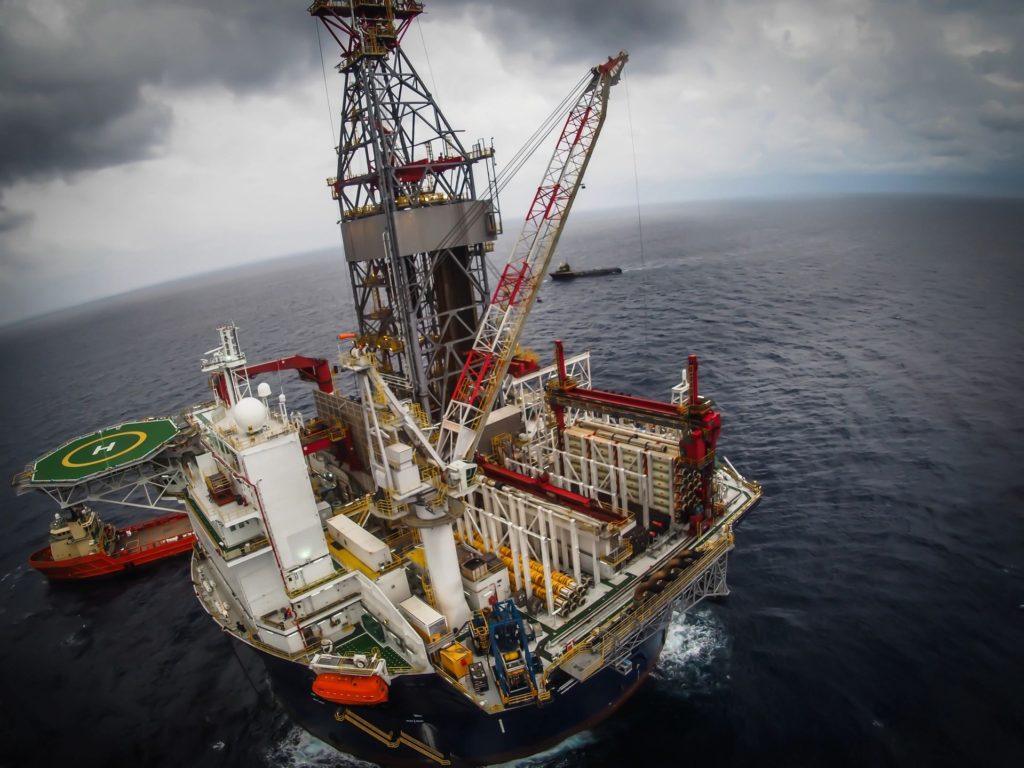
Zinke rolls back restrictions on offshore energy research
by John Siciliano
Interior Secretary Ryan Zinke took new actions on Wednesday to reverse the Obama administration’s restrictions on mapping the nation’s offshore oil and natural gas resources.
The White House got out ahead of Zinke in announcing actions to open up the Atlantic Ocean and the outer-continental shelf to companies ready to begin deepwater surveying to understand how much oil and natural gas is actually there.
Zinke’s action was the latest step in implementing President Trump’s America First offshore energy strategy by “reversing an Obama administration action to halt scientific research in the outer-continental shelf,” said White House deputy press secretary Sarah Sanders.
Zinke later said the move would restore research about the nation’s offshore resources after a more than 30-year hiatus on conducting seismic surveys and other forms of scientific research.
“Allowing this scientific pursuit enables us to safely identify and evaluate resources that belong to the American people. This will play an important role in the president’s strategy to create jobs and reduce our dependence on foreign energy resources,” Zinke said.
Wednesday’s action by the Interior Department reverses a decision made by the Obama administration’s Bureau of Ocean Energy Management “to deny the permit applications” for companies looking to conduct seismic surveys off the Atlantic coast, the agency said.
Zinke will await a remand by the Interior Board of Land Appeals of the permit denials made by the Obama administration, which will begin the review process toward approving them. Environmental groups have been opposed to the use of seismic survey tools because they say they harm marine mammals. But the Interior Department said for nearly 20 years it has “invested over $50 million on protected species and noise-related research, including marine mammals.”
The agency added that the seismic surveys “are not expected to have significant impacts on marine mammal populations or the environment given the use of advanced technology and other safeguards that are currently required.” It said the agency employs measures and safeguards to “reduce or eliminate” harm to marine life.
The Bureau of Ocean Energy Management’s “mission is to manage the development of our nation’s offshore resources in an environmentally and economically responsible way,” said the bureau’s acting director, Walter Cruickshank. “We will continue to keep the public informed as we renew our efforts to evaluate these permits.”
The bureau estimates that offshore reserves equal nearly 90 billion barrels of recoverable oil and 327 trillion cubic feet of natural gas. In 2016, offshore drilling accounted for 72 percent of the oil and 27 percent of natural gas produced on federal lands.
The effort is part of a laundry list of reviews and regulatory repeals that Zinke has been directed to conduct under executive orders Trump signed late last month.
Zinke finished the third of a four-day visit Utah on Wednesday. The trip is meant to hear from groups in the state through a series of public listening sessions. The sessions will be used to make decisions on potentially reversing former President Barack Obama’s controversial designation of the Bears Ears national monument in Utah.
The Trump administration said Obama’s decision to name the monument was rushed and did not take the time to hear from groups in the state before making a decision that curtails the use of the land for other purposes.
Zinke’s agency will be in Arizona next week as part of an effort to save the Navajo Generating Station, the largest coal-fired power plant in the West.
The department will host four listening sessions, May 15-19, in Arizona, where members of the public and local, state and tribal officials will speak on the future of the power plant. The plant is slated to close at the end of 2019.
The power plant has proven too expensive to operate given increased competition from other power plants that use natural gas to produce electricity. The owners of the plant have been in talks with Zinke and the Navajo Nation, which leases the land the plant is on, to find a way to keep it operating. Keeping the coal plant running is part of the president’s plan to restore coal jobs.
Originally posted at: http://www.washingtonexaminer.com/zinke-rolls-back-restrictions-on-offshore-energy-research/article/2622732

